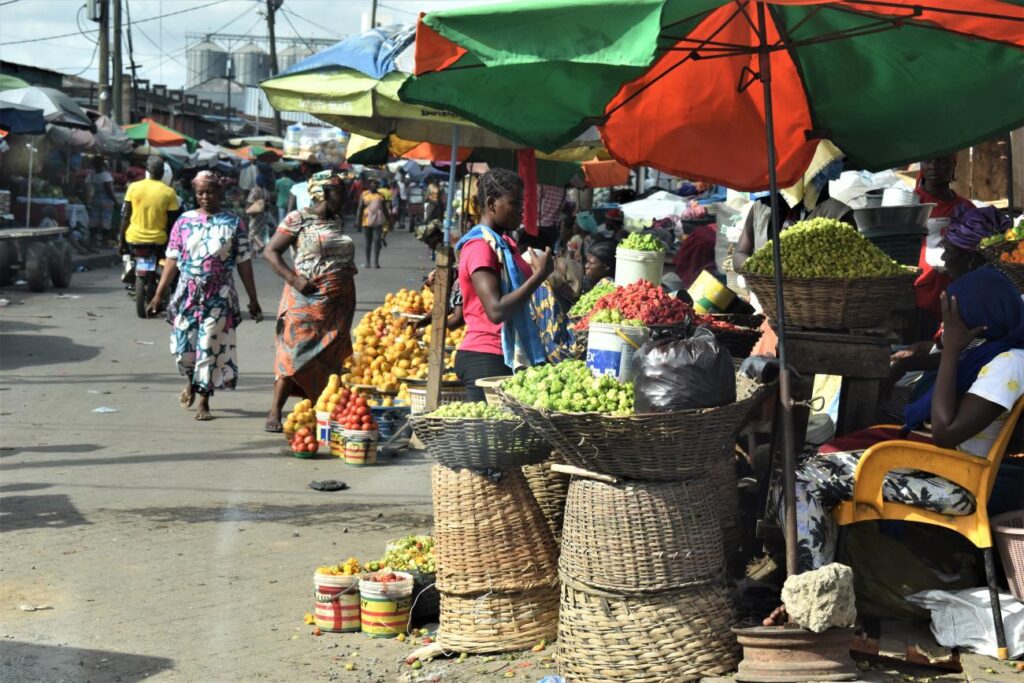If you’ve ever visited a Ghanaian market and paid full price for something without at least pretending to negotiate, don’t worry—we forgive you. But it’s time to upgrade your skills. 😄
Bargaining in Ghana isn’t just a way to save money. It’s a social dance, a form of friendly debate, and sometimes even a way to make new friends (or gain a market auntie who adopts you for life). But tread carefully, my friend—there’s an art to it.
Let’s dive in.
1. Start with a Smile (Not a Frown)
Ghanaians love friendly people. Walking into a stall looking like you just fought traffic in Accra (which, to be fair, you probably did) won’t help your bargaining game.
✅ Pro Tip: Greet first. Say “Good morning” or “Ɛte sɛn?” (How are you?) before jumping into prices. It sets the tone and shows respect.
Bonus: A cheerful “Medaase” (thank you) after your purchase can earn you a discount next time. Market people remember polite customers!
💬 2. Ask for the Price, Then Pause Dramatically
This is your Oscar-winning moment. 🎭
After the seller gives the price, pause. Make a face like your grandmother just told you you’re paying too much. Then ask, “Ah, is that the last price?”
Avoid saying things like:
❌ “This is too expensive!” (It sounds insulting)
✅ Try: “Oh, bossu, reduce it small for me na I be your first customer today.”
💸 3. Know the Price Range Before You Go
Doing a bit of homework never hurts. Ask a local or look online before you hit the market. If you know the average price of say, kente or shea butter, you won’t be caught off guard when someone tries to charge you “tourist price.”
📖 Related blog post: Best Souvenirs to Buy in Ghana and Where to Find Them
🧠 4. Understand the Market Math
Sellers sometimes double or triple the price because they expect you to bargain. It’s the Ghanaian version of “Name your price.”
If a seller says GHS 100, feel free to start at GHS 50—but not GHS 10, unless you want to get that look that says, “Please respect yourself.”
😂 5. Use Humor – It Works!
Sellers love witty customers. Throw in a funny line like:
“Ah, if I buy this for GHS 80, how will I chop waakye tomorrow?”
Or
“This price can build me a small one-bedroom in the village o!”
You’ll probably get a laugh—and maybe a better price.
🤝 6. If You Don’t Like the Price, Walk Away Slowly
No need to cause drama. Just smile, say thank you, and walk away slowly. Many times, the seller will call you back with a better offer. If not, someone down the next row probably has the same item.
🙅 7. Don’t Be Rude, Even If They Are
Yes, sometimes a seller might act annoyed if you bargain “too much.” Stay calm. Smile. Say, “Oh, sorry boss, I didn’t know.” Keep it classy. Remember, you’re not just shopping—you’re building vibes. 😎
🛍️ 8. When to Stop Bargaining
Once you agree on a price, don’t push further. Bargaining is meant to be fun and respectful. If you force it too much, it can feel disrespectful.
Also, keep in mind that many of these vendors hustle daily to feed their families. A few extra cedis to you might mean a meal for someone else.
👚 9. Try Bargaining in Twi (Or a Local Language)
It instantly breaks barriers.
Try phrases like:
- “Fa so kakra” – Reduce it a little
- “Mepakyɛw” – Please
- “Ɛyɛ dɛ oo!” – This is nice!
Even if your accent is off, they’ll appreciate the effort—and maybe reduce the price for the fun of it. 😂
🧾 10. Support the Small Vendors Too
Yes, bargaining is fun. But sometimes, if someone’s selling sachet water in the hot sun, just pay the full GHS 0.50. Bargain where it matters—on bigger purchases.
Final Words: Bargain With Heart 💛
Bargaining in Ghana isn’t war—it’s a conversation, a ritual, and sometimes, an unspoken way of saying “I see you, I respect you, let’s have fun with this.”
So go forth, smile wide, speak kindly, and get yourself that woven basket or handmade bracelet without feeling like you just broke someone’s heart.
More Ghanaian Market Magic:
👉 How to Find the Best Kenkey and Fish in Any Ghanaian Town
👉 Ghanaian Street Food Guide
👉 Best Chop Bars in Ghana: A Regional Guide

